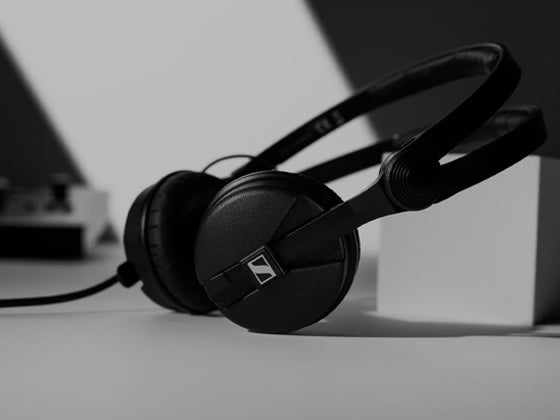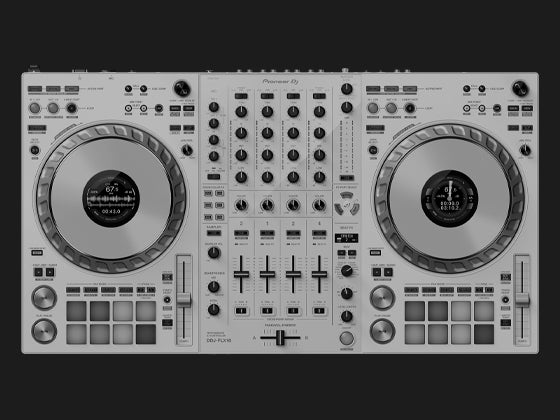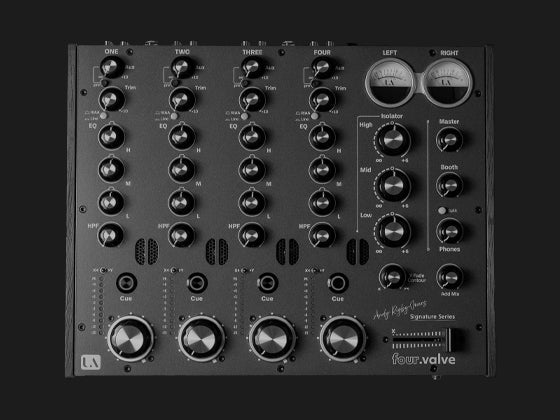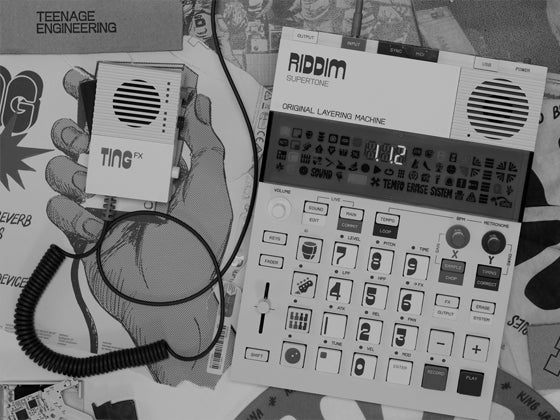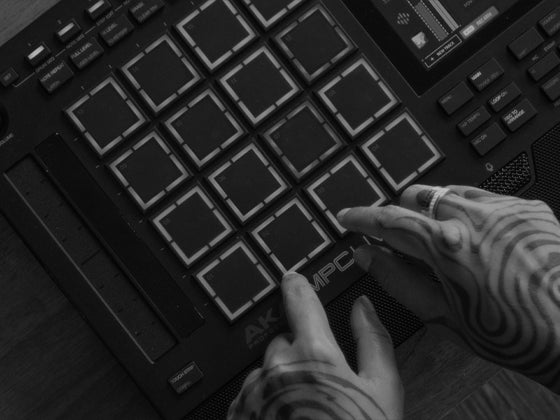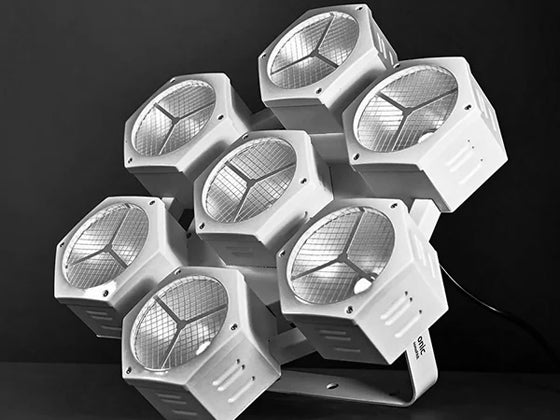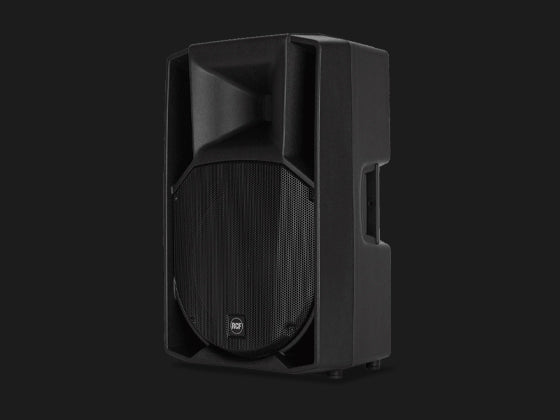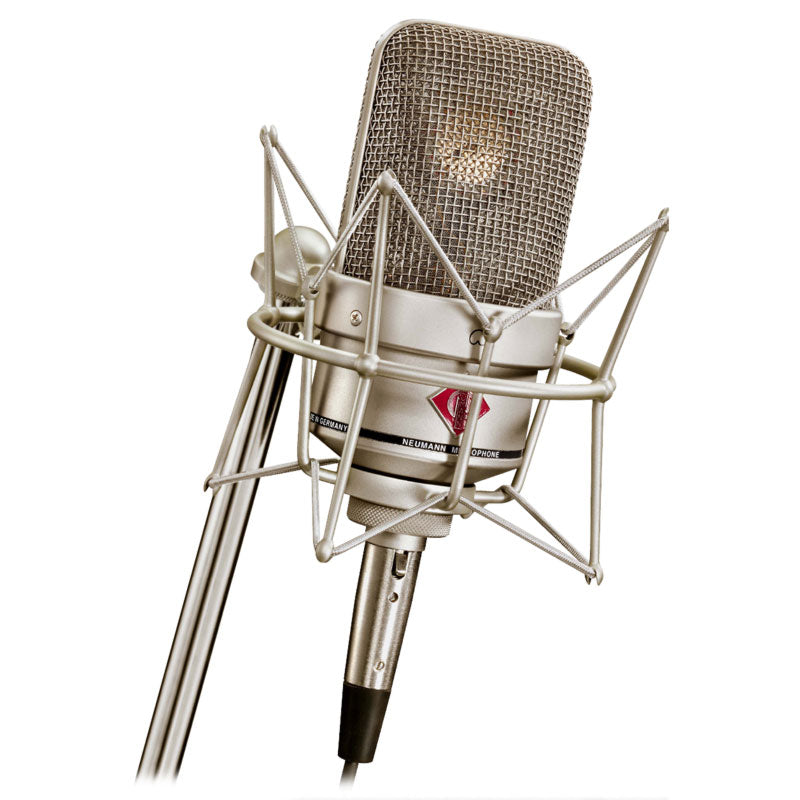
Neumann
NEUMANN TLM49 Large Diaphragm Condenser Mic w/ Shockmount
The TLM 49* is a large-diaphragm studio microphone with a cardioid directional characteristic and a warm sound which is especially optimized for vocal performance. It is supplied as a set, with an elastic suspension.
The design is inspired by that of the legendary M 49 and M 50 microphones of the 1950s. Naturally the TLM 49 has the typical Neumann fine matte nickel finish. The “sound design” is also oriented toward that of the M 49 and the U 47.
By combining its retro look with proven Neumann transformerless circuit technology, this microphone ensures low self-noise and the use of high gain levels.
Applications
During the development phase, the sound was adjusted in extensive practical tests, so as to make the TLM 49 ideal particularly for vocal and speech recording. However, in addition, it is also suitable for instrumental applications in professional production studios and demanding home recordings.
Polar pattern
The large-diaphragm capsule of the TLM 49 provides a cardioid directional characteristic with a tendency toward supercardioid, due to the special capsule construction. Following the example of the M 49, high frequencies are more directional. The capsule diameter is 34 mm.
The front of the microphone is indicated by the red Neumann logo on the microphone body. The capsule is oriented so that the microphone is addressed from the front.
Acoustic features
The TLM 49 uses the famous K 47 capsule, which was also used in the M 49 and the U 47. The capsule has a linear frequency response up to the upper mid-range. Above 2 kHz there is a gentle presence boost up to 3 dB.
The capsule is enclosed by a large microphone headgrille, which is acoustically very open and is hence neutral with regard to the sound.
Electrical features
The letters TLM stand for “transformerless microphone”. With TLM technology the usual output transformer is replaced by an electronic circuit.
As with traditional transformers, it ensures good common mode rejection, and prevents RF interference that may influence the balanced audio signal.
Noise signals which affect the balanced modulation line are therefore effectively suppressed. The microphone can operate at sound pressure levels of up to 129 dB without distortion, and provides a dynamic range of 117 dB (A-weighted).
| Acoustical operating principle | Pressure gradient transducer |
| Directional pattern | Cardioid |
| Frequency range | 20 Hz ... 20 kHz |
| Sensitivity at 1 kHz into 1 kohm | 13 mV/Pa |
| Rated impedance | 50 ohms |
| Rated load impedance | 1 kohms |
| Equivalent noise level, CCIR1) | 23 dB |
| Equivalent noise level, A-weighted1) | 12 dB-A |
| Signal-to-noise ratio, CCIR1) (rel. 94 dB SPL) | 71 dB |
| Signal-to-noise ratio, A-weighted1) (rel. 94 dB SPL) | 82 dB |
| Maximum SPL for THD < 0.5 %2) | 110 dB |
| Maximum SPL for THD < 5 %2) | 129 dB |
| Maximum output voltage for THD < 5%2) | -1 dBu |
| Supply voltage (P48, IEC 61938) | 48 V ± 4 V |
| Current consumption (P48, IEC 61938) | 3.2 mA |
| Matching connector | XLR 3F |
| Weight | 825 g |
| Diameter | 78 mm |
| Length | 165 mm |
- Sound profile optimized for vocal performance
- Pressure gradient transducer with the large-diaphragm capsule of the legendary U 47
- Cardioid characteristic
- Transformerless output circuitry
- Acoustically very open wire mesh headgrille
- Complete set with elastic suspension
- Sound profile optimized for vocal performance
- Pressure gradient transducer with the large-diaphragm capsule of the legendary U 47
- Cardioid characteristic
- Retro design
- Transformerless output circuitry
- Acoustically very open wire mesh headgrille
- Complete set with elastic suspension

